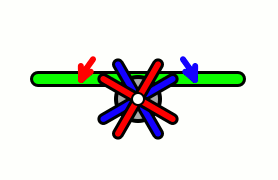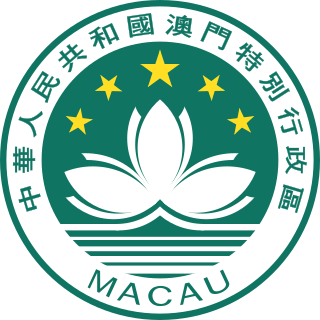Related Research Articles

Contra dance is a form of folk dancing made up of long lines of couples. It has mixed origins from English country dance, Scottish country dance, and French dance styles in the 17th century. Sometimes described as New England folk dance or Appalachian folk dance, contra dances can be found around the world, but are most common in the United States, Canada, and other Anglophone countries.

The Contras were the various U.S.-backed and funded right-wing rebel groups that were active from 1979 to 1990 in opposition to the Marxist Sandinista Junta of National Reconstruction Government in Nicaragua, which had come to power in 1979 following the Nicaraguan Revolution. Among the separate contra groups, the Nicaraguan Democratic Force (FDN) emerged as the largest by far. In 1987, virtually all Contra organizations were united, at least nominally, into the Nicaraguan Resistance.

The Iran–Contra affair, often referred to as the Iran–Contra scandal, was a political scandal in the United States that occurred during the second term of the Reagan administration. Between 1981 and 1986, senior administration officials secretly facilitated the illegal sale of arms to Iran, who was subjected to an arms embargo at the time. The administration hoped to use the proceeds of the arms sale to fund the Contras, an anti-Sandinista rebel group in Nicaragua. Under the Boland Amendment, further funding of the Contras by legislative appropriations was prohibited by Congress, but the Reagan administration figured out a loophole by secretively using non-appropriated funds instead. The Iran–Contra affair is sometimes referred to as the McFarlane affair in Iran.
John Taylor, English classical scholar, was born at Shrewsbury in Shropshire, England.

The National emblem of Angola reflects the recent past of the new nation. There is heavy Marxist imagery found on the device, expanded from what is found on the national flag.

The contrabass clarinet (also pedal clarinet, after the pedals of pipe organs) and contra-alto clarinet are the two largest members of the clarinet family that are in common usage. Modern contrabass clarinets are transposing instruments pitched in B♭, sounding two octaves lower than the common B♭ soprano clarinet and one octave below the bass clarinet. Some contrabass clarinet models have extra keys to extend the range down to low written E♭3, D3 or C3. This gives a tessitura written range, notated in treble clef, of C3 – F6, which sounds B♭0 – E♭4. Some early instruments were pitched in C; Arnold Schoenberg's Fünf Orchesterstücke specifies a contrabass clarinet in A, but there is no evidence such an instrument has ever existed.

The contra-alto clarinet, E♭ contrabass clarinet, is a large clarinet pitched a perfect fifth below the B♭ bass clarinet. It is a transposing instrument in E♭ sounding an octave and a major sixth below its written pitch, between the bass clarinet and the B♭ contrabass clarinet.

Aircraft equipped with contra-rotating propellers, also referred to as CRP, coaxial contra-rotating propellers, or high-speed propellers, apply the maximum power of usually a single piston or turboprop engine to drive a pair of coaxial propellers in contra-rotation. Two propellers are arranged one behind the other, and power is transferred from the engine via a planetary gear or spur gear transmission. Contra-rotating propellers are also known as counter-rotating propellers, although the term counter-rotating propellers is much more widely used when referring to airscrews on separate non-coaxial shafts turning in opposite directions.

Egidio Forcellini was an Italian philologist.

The Case of Wagner is a book by the philosopher Friedrich Nietzsche, originally published in 1888. Subtitled "A Musician's Problem".

The current devised Emblem of the Macao Special Administrative Region of the People's Republic of China came into use on 20 December 1999, when the sovereignty of Macau (Macao) was transferred from Portugal to the People's Republic of China. The emblem is now referred to officially as the "Regional Emblem" (區徽).
In English law, contra format collations was a writ to recover donations in a situation where a man had given perpetual alms to a religious house, hospital, school, or the like, and the governor or managers had alienated the lands, contrary to the intention of the donor.
In English law, 'contributione facienda' is a writ which lies where several persons are jointly bound to the same thing, and one or more of them refuse to contribute their share.

The coat of arms of São Tomé and Príncipe consists of a peregrine falcon on the left and a grey parrot on the right holding a coat of arms with a palm in its center. The coat of arms is surmounted by a blue star. Above, there is a band that states the name of the country. At the base of the arms the national motto, "Unity, discipline, work" is inscribed.

Jacobus Tirinus (1580–1636) was a Belgian Jesuit Biblical scholar.
Arsène Lupin contra Sherlock Holmes is a 1910 German drama film serial directed by Viggo Larsen. The survival status of any of the episodes is unknown.
Fibria Celulose was a Brazilian pulp and paper company, created by a merger between Aracruz Celulose and Votorantim Celulose e Papel. The company has a production capacity exceeding six million tons of pulp and paper produced in seven factories distributed in five Brazilian states. Much of this production is exported. The company has many distributor centers around the world and five branch offices in São Paulo (Headquarters), Beijing, Csomád - Hungary, Hong Kong, Miami and Nyon, Switzerland.
Secundum formam statuti is a legal term which means: "according to the form of the statute" 1.
R v Journeymen-Taylors of Cambridge (1721) 88 ER 9 is a labour law case, concerning the historical attitude of the common law to trade unions. It held that strike action amounted to an unlawful and criminal conspiracy. This attitude prevailed through the 19th century, until trade unions were made lawful by Parliament in the Trade Union Act 1871 and the Conspiracy, and Protection of Property Act 1875. The Trade Disputes Act 1906 confirmed unions' legality at common law once more, and now the position is reflected in international law, particularly the ILO Convention No 87 and 98.
Robert Sorin Neciu is a Romanian professional footballer who plays as a defender.
References
- ↑
 This article incorporates text from a publication now in the public domain : Chambers, Ephraim, ed. (1728). Cyclopædia, or an Universal Dictionary of Arts and Sciences (1st ed.). James and John Knapton, et al.
This article incorporates text from a publication now in the public domain : Chambers, Ephraim, ed. (1728). Cyclopædia, or an Universal Dictionary of Arts and Sciences (1st ed.). James and John Knapton, et al.{{cite encyclopedia}}: Missing or empty|title=(help)